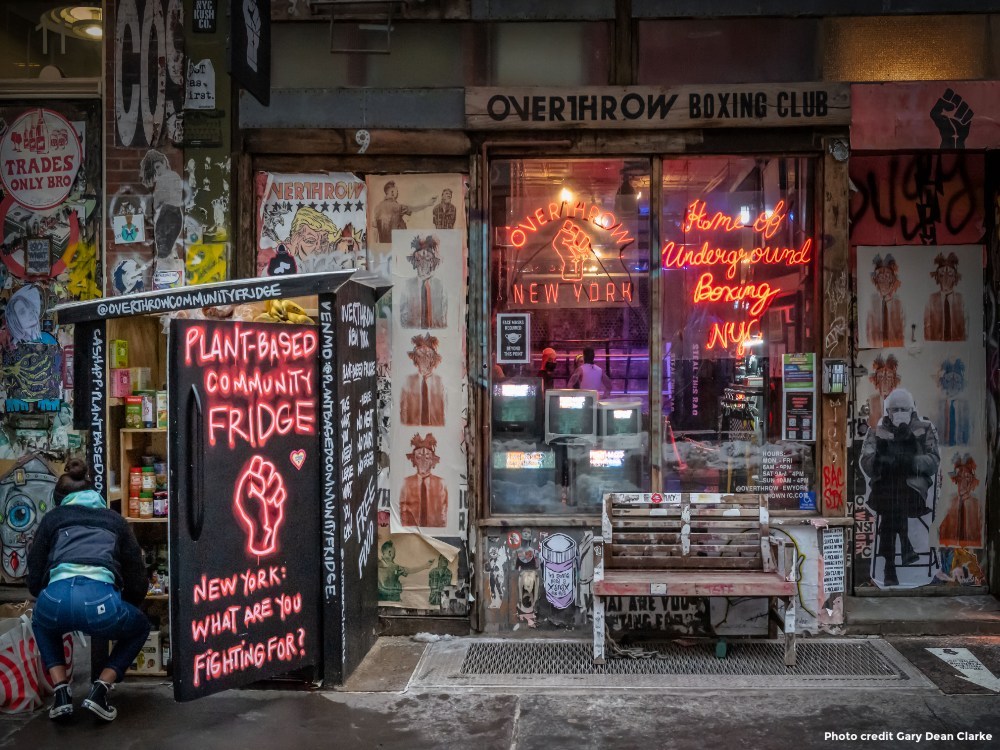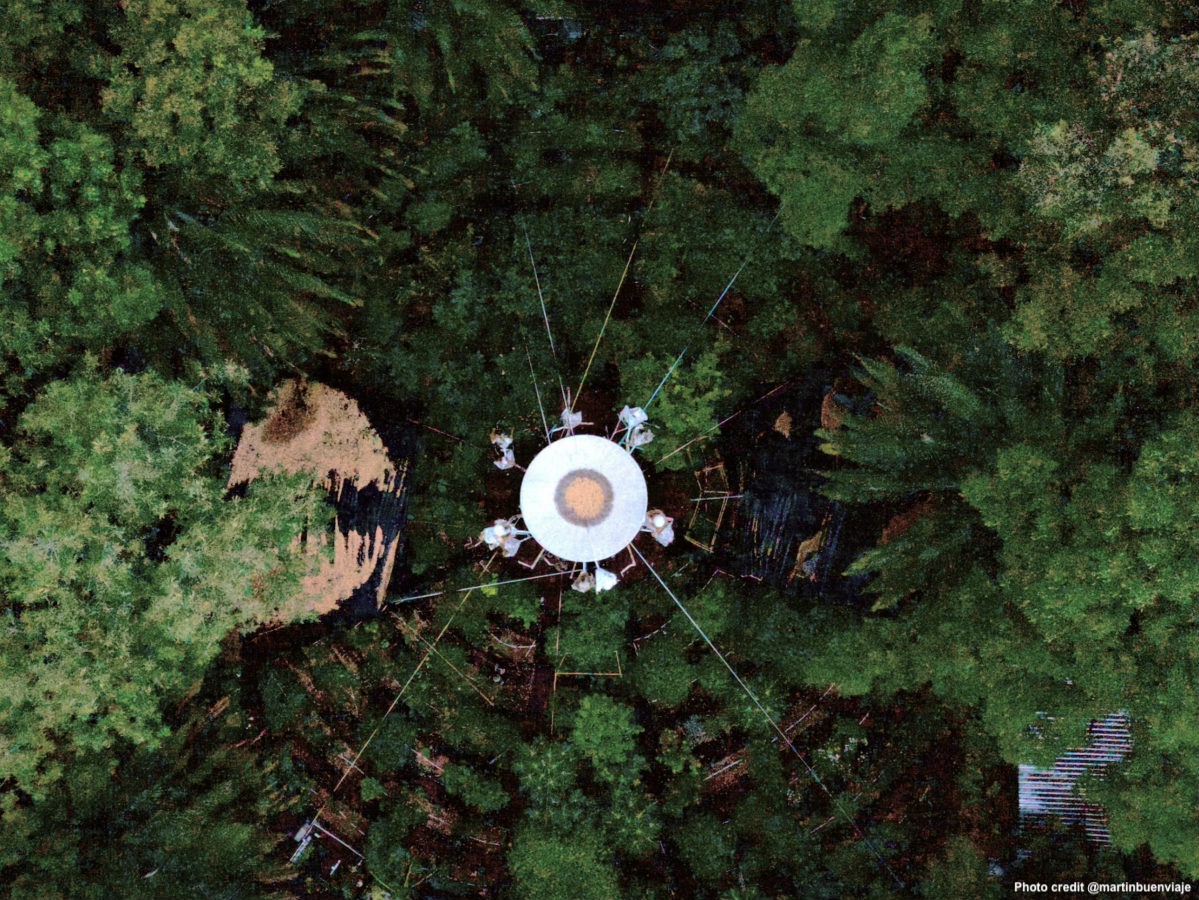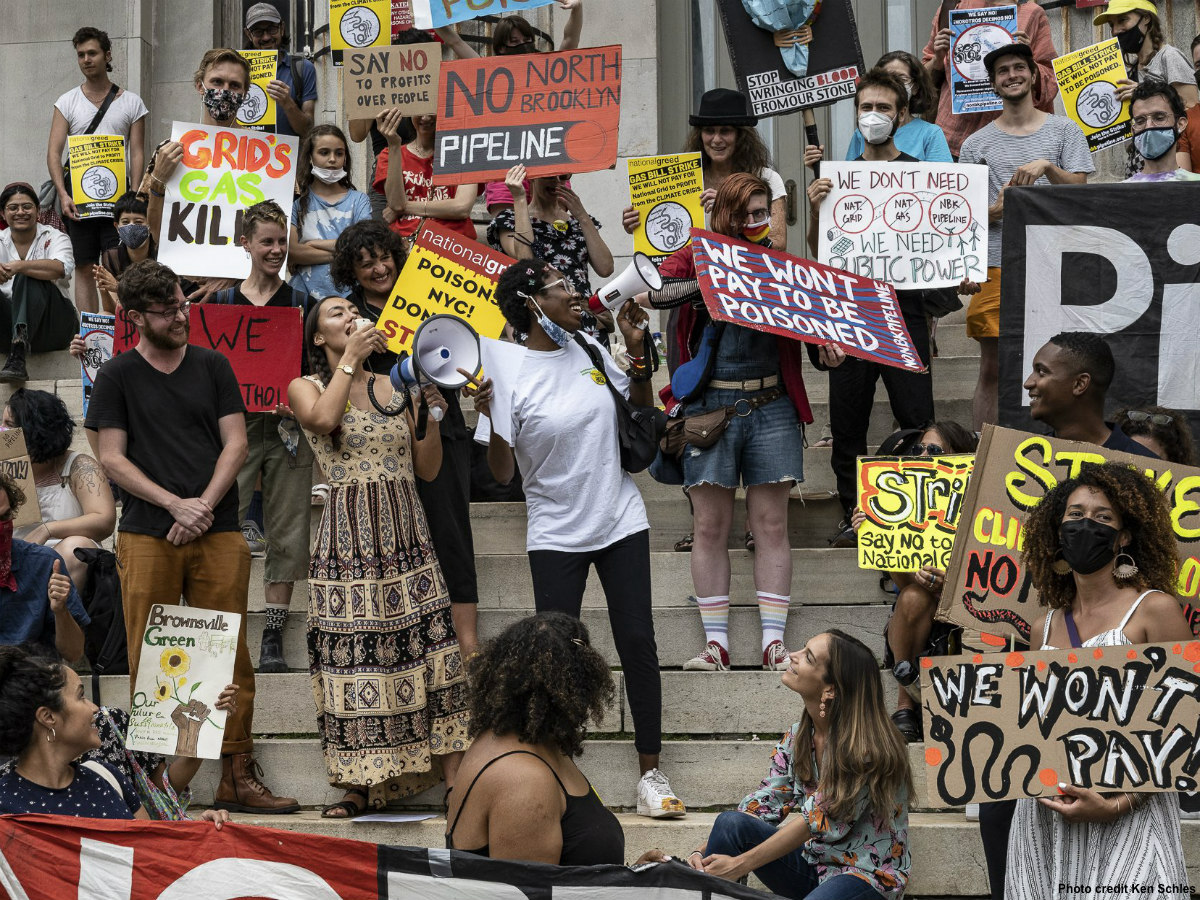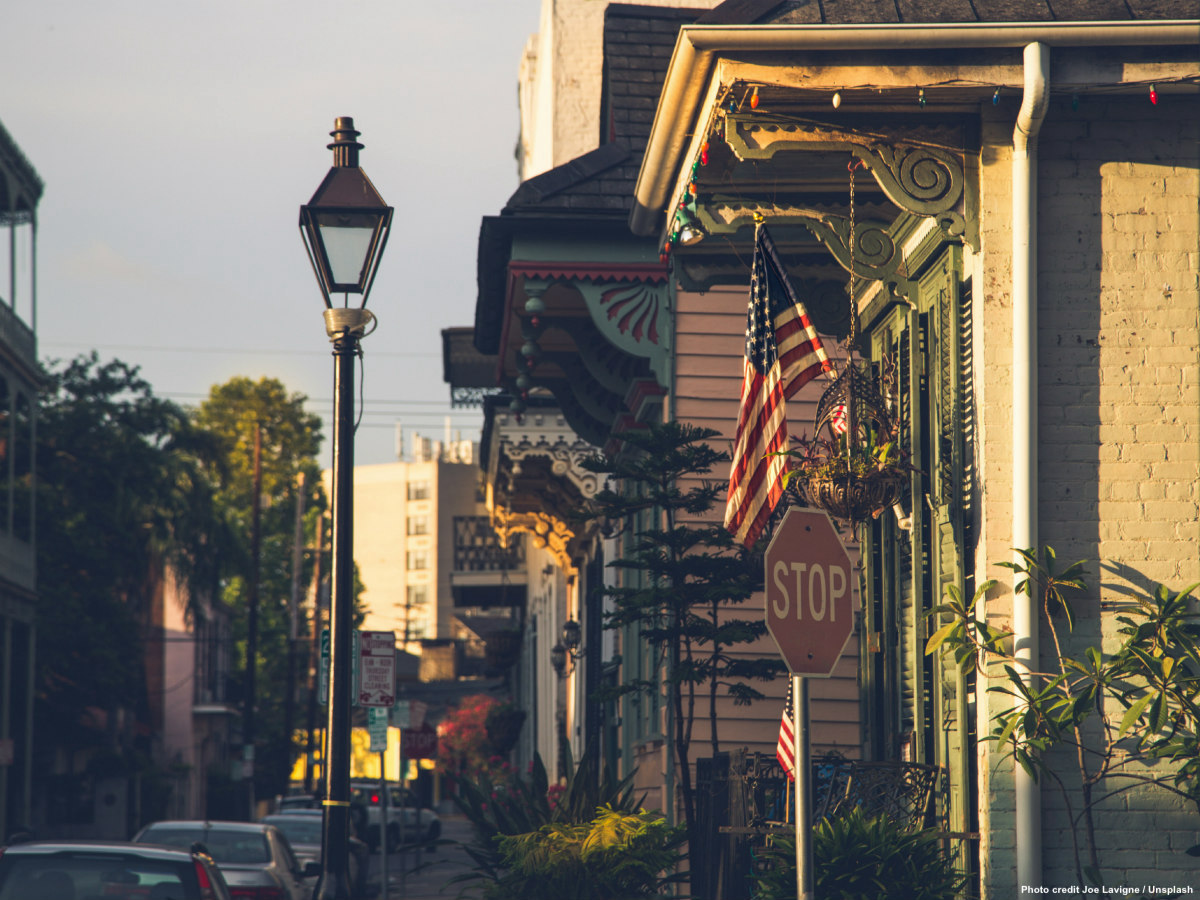Fifty years ago The Fight of the Century took place between Muhammad Ali and Joe Frazier at New York’s Madison Square Garden. It was widely regarded as the biggest boxing match in history. Ali’s actions and beliefs serve as an inspiration to many. What are you fighting for? reads at the door of the first vegan community fridge located outside of a boxing club in Manhattan. The Overthrow Community Fridge is a signature move by its founders towards healthy plant-based food and less meat to fight diseases and save the environment.
One of its founders is Power Malu, the boxing club’s community programmer and a long time activist around issues dealing with health in underserved and marginalized communities through his non-profit organization Artists Athletes Activists.
I was volunteering to deliver food to people when I realized that nobody seemed to care about healthy options. Before taking up the cause, I learned about the common illness in these communities. I was struck by the pileups of medicines on their tables at home, reveals Malu.
He met activist Eloisa Trinidad through a vegan restaurateur. Soon both agreed to create a vegan fridge on the street, available 24 hours per day and free to anyone in need, to connect people with plant-based food. Trinidad is the executive director of Chilis on Wheels New York, Vegan Activist Alliance and president of the Hip Hop Is Green New York chapter; all leading advocate groups that challenge the exploitation and marginalization of all beings who are part of the food chain.
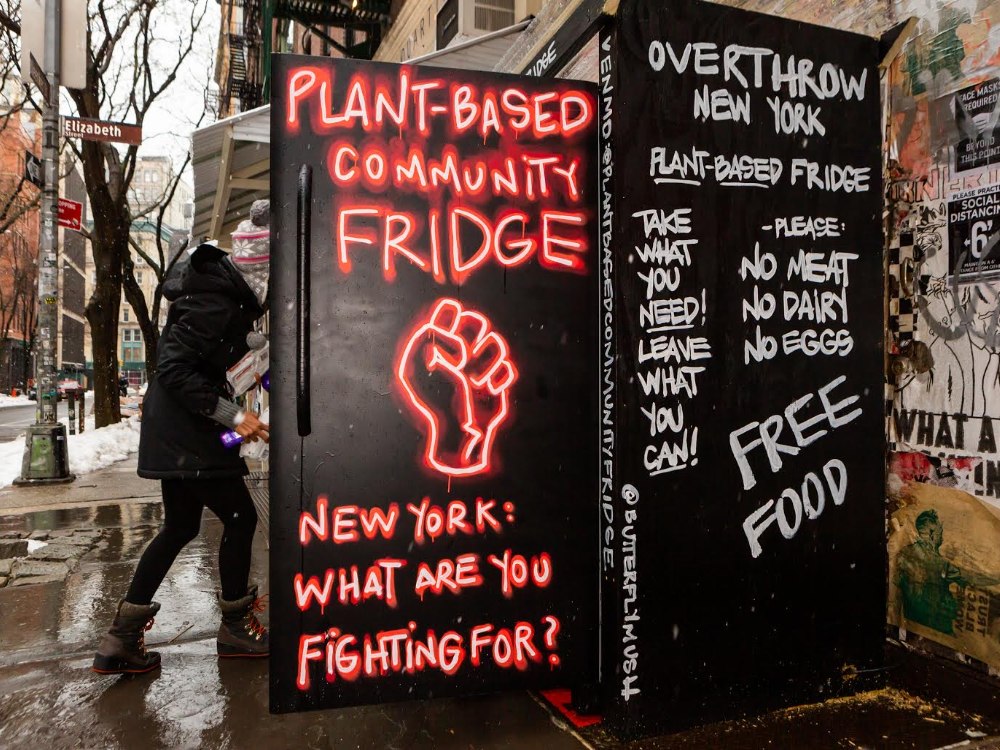
Located on 9 Bleecker Street on the edge of the Lower East Village, this food pantry at the intersection of expensive boutiques and people living in shelters, illustrates how inequality affects a sustainable future. There is enough scientific evidence that food can optimize human health and the environment but only when the systems in place ensure that everybody can afford healthy and ethical choices.
This city is very segregated in terms of income. Too many people are barely getting by with low-quality diets while others can afford everything. I feel the conversation about food has to be multi-layered, explains Trinidad.
Unhealthy food systems. When you don’t have a choice
This neighbourhood is not a food desert, but a food apartheid; fresh fruits and vegetables are available at supermarkets around the area. However, people are more sensitive to price and taste preferences than to food store access.
According to Numbeo, a user populated cost of living index, one kilogram of apples at a grocery store in New York cost around $6.22, and in London $2.99, a staggering price difference that makes unhealthy food more attractive, especially if you are looking to cover your protein intake. One kilogram of beef costs in New York $17.25, ‘only’ 25.89 % higher than in London at $13.70.
How can these differences be possible? In Manhattan food has to be sourced from outside and the logistics of delivering fresh food can be significantly high. Although this factor could apply to large cities in Europe as well, prices are still considerably lower.
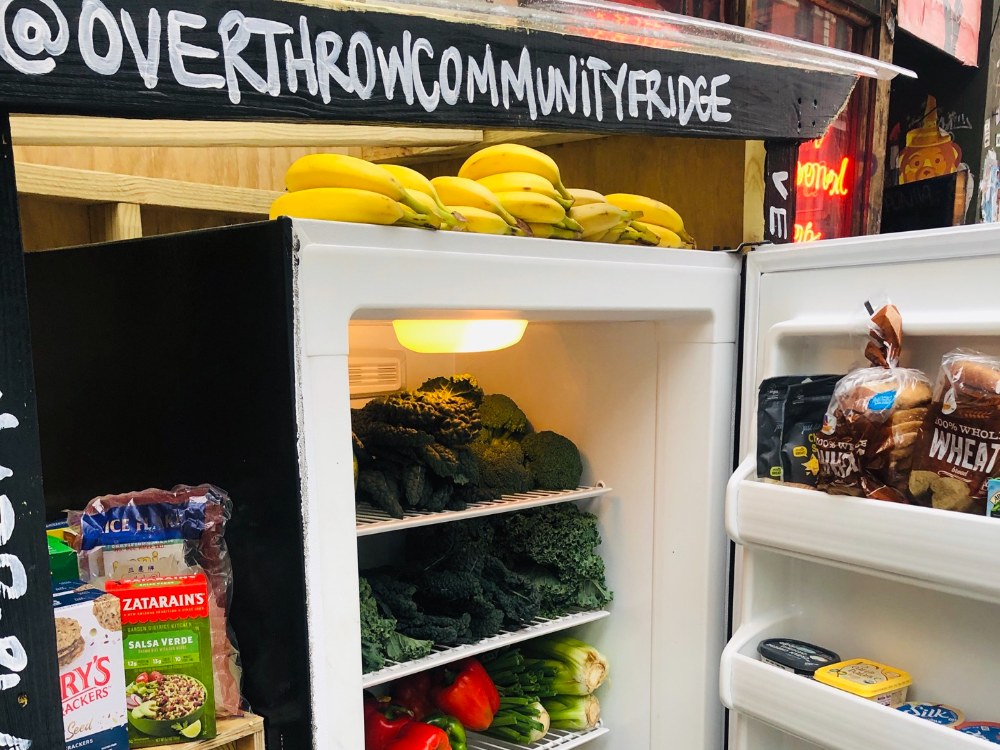
In addition, the US government subsidizes leafy vegetable crops but not as much as it supports wheat and corn, ingredients contained in a lot of junk food. Fresh fruits and vegetables represent only 0.4% of total subsidies, making them more expensive to farm than crops that will be processed.
Food cooperatives like the popular Park Slope in New York have addressed this issue. Their secret is simple: to shop there, all members—rich and poor—have to put in three hours a month of work. The more members joining means lower labour costs and thus lower prices.
Trinidad speaks of an oppression in the US food system where structural barriers harness the human right to access affordable healthy food, leading to unequal health outcomes and a negative impact on the environment.
Meat consumption has become an ecological pollutant
The increased meat consumption, once the privilege of the upper classes, traditionally symbolized equality as income grew and society evolved over time. However, the current mass production of cheap meat has translated into inequality.
The pandemic has revealed the rotten structures in the meat industry. Both in Germany as in the US, scandals of people getting sick in the slaughterhouses because of poor working conditions, have disclosed why industrial meat became so cheap at cost-cutting lines and at ever-increasing speeds.
According to a study for the World Economic Forum in 2019, a diet heavy in beef increases the rate of heart attacks and cancer. Switching from beef to alternative protein sources through plant-based food could therefore reduce the number of diet-related deaths in affluent countries by up to five percent.
When it comes to the environment, research shows that in 2010 beef production was responsible for 25 percent of all greenhouse gas emissions from the food sector.
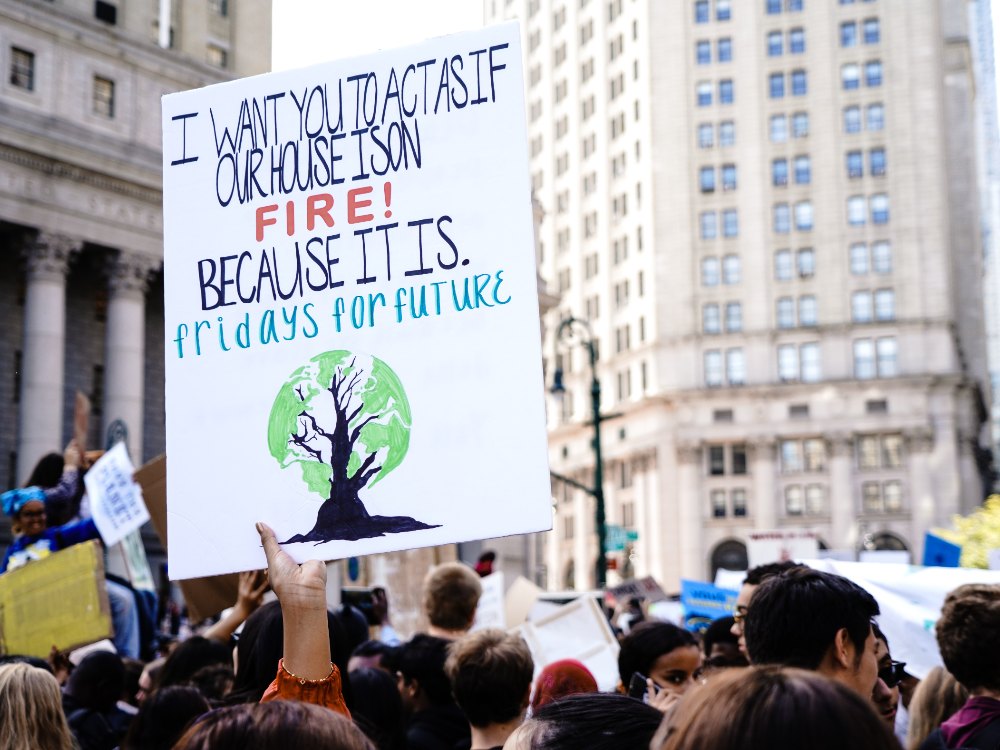
A report in the medical journal The Lancet suggested that people in North America eat more than six times the recommended amount of red meat. Eating less meat could significantly combat diseases in the US and reduce emissions to save the environment.
‘The fridge tries to simplify the many vegan options available to replace meat and support a plant-based diet. There is a misconception that people in underserved communities do not recognize good food. Our experience tells a different story. People are happy to have something different than meat to eat,’ says Trinidad.
‘The morale of the people in NYC is low. However, thanks to the energy of the boxing club and other engaged New Yorkers we are building a community around the fridge that keeps it well stocked and keeps up with the demand’, says Malu.
We can’t think of food, without thinking about health and the planet. But food eco-systems would have to change radically to make fresh food affordable to everyone and persuade people to switch their eating habits. This will be our Fight of the Century.
